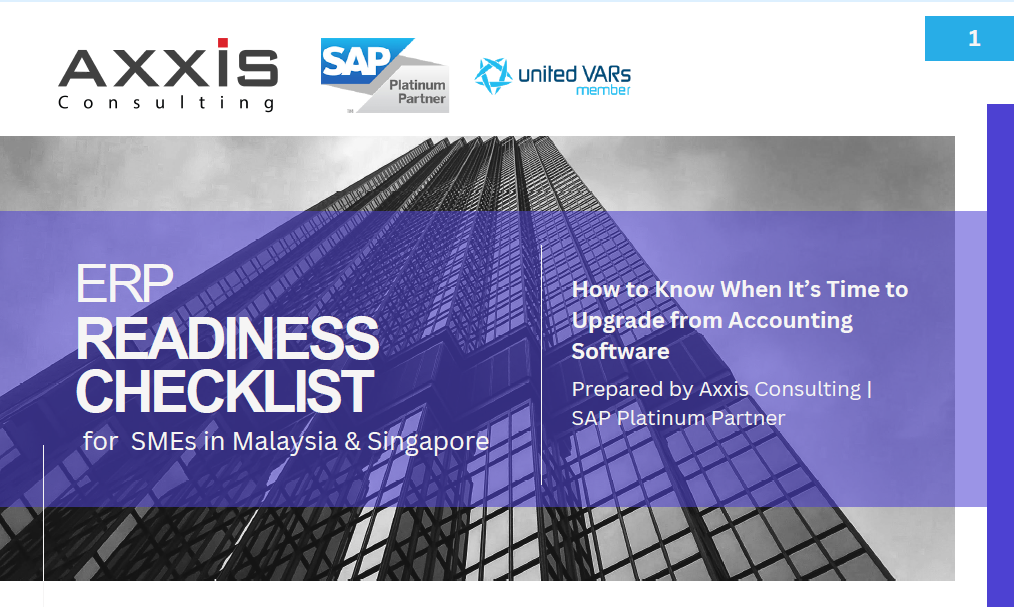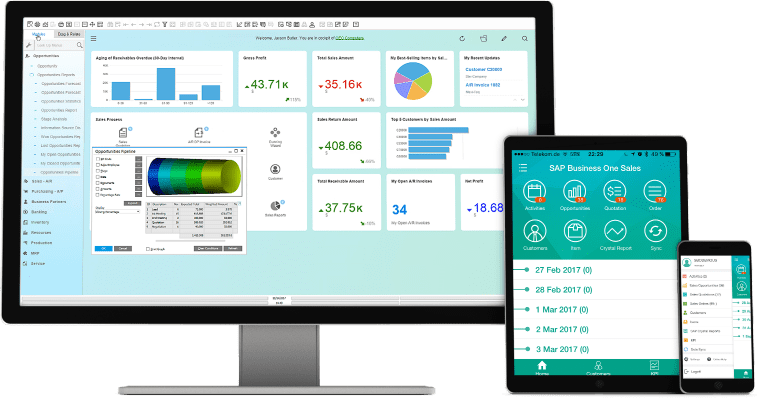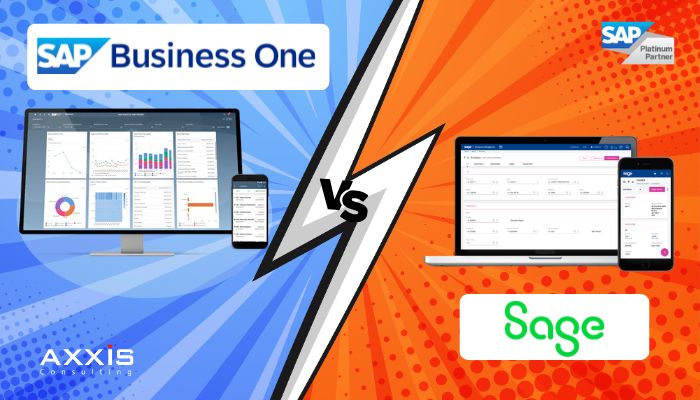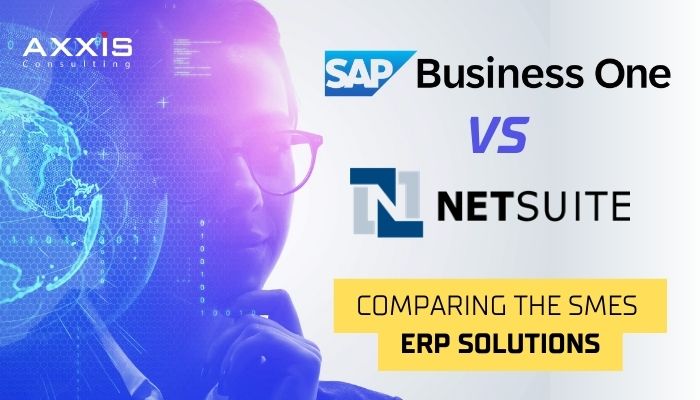This guide helps you determine if you're ready to take the next step toward ERP (Enterprise Resource Planning). It’s a practical, non-technical checklist designed for business owners, finance leads, and operations managers.



Robust and scalable Cloud ERP solutions designed for businesses of all sizes and industries to optimise business operations, increase productivity, and boost profitability. Connect with an expert to find the right ERP solution for your business!
Talk to Us →





Download Here

Thousands of companies worldwide—including many of your competitors—use Cloud ERP solutions like SAP, NetSuite, Dynamics 365, Sage, Acumatica, Infor, Epicor, and Odoo. Cloud ERP gives your business the flexibility and agility to adapt to changing needs while providing real-time insight into company performance. It also allows employees, subcontractors, vendors, and customers to access information anywhere, anytime. At Axxis Consulting, we prioritize security and data privacy, ensuring your sensitive business data is always protected. With Cloud ERP, professional security experts manage backups and system security, letting you focus on growing your business.



SAP’s on-demand, cloud-based Enterprise Resource Planning solution, empowering SMEs to large enterprises with agility, scalability, and intelligent operations.

Empower SMEs with an affordable and scalable ERP solution, available both on-premise and in the cloud, to streamline operations and drive growth.
Learn more

A cloud-based ERP designed for mid-sized businesses, offering an integrated suite of tools to enhance agility, efficiency, and scalability.
Learn more

An AI-powered cloud ERP for mid to large enterprises, with GROW with SAP for fast scaling and RISE with SAP for full digital transformation.
Learn more
Whether you run a small business or a large enterprise, a Cloud ERP solution is designed to help you achieve your business goals.
Cloud ERP makes routine accounting operations automatable and improve treasury & financial risk management processes. Also, Cloud ERP makes it easier to do activities like maintaining fixed assets.
You can manage all of your sales processes and the entire customer life cycle with Cloud ERP. Maximise revenue with order & contract management, drive sales performance, and support your salesforce & sales managers.
With the help of Cloud ERP, you can manage your stock levels, track items across many locations, and keep an eye on your suppliers while also getting a complete picture of your inventory.
You can make better decisions and streamline the entire production planning process with Cloud ERP, which can offer real-time visibility into Warehouse & Bin Location Management, Goods Receipt, Issue Control and MRP.
By integrating business intelligence with Cloud ERP, you can benefit from real-time analytics, access to data anytime & anywhere, cost-effectiveness, increased collaboration, and decision-making abilities.
Cloud ERP provides mobile access to analytics and reporting, self-service analytics, customizable reporting, integration with external data sources, real-time data insights, and predictive analytics.








Cloud ERP software is offered on different licensing models: perpetual licenses, subscription licenses, and consumption-based term licenses. The cost of implementation and support depends on various factors (such as the number of users to be supported, the complexity of business requirements, interfaces, etc.). Please get in touch to find out more.
Cloud ERP systems have several advantages over on-premises systems because they’re easy to use with automatic software updates and maintenance and accessible from anywhere with an internet connection, they can be scaled to meet your business needs, they’re affordable than installing your own systems, and they have great security features.
An ERP system helps businesses manage their business processes and data in a cloud-based environment. It centralizes data and streamlines business functions like accounting, inventory, and customer management. This system makes it easy for companies to access their data from any location with an internet connection. Cloud ERP systems are often more secure, flexible, and cost-effective and have better security features than on-premises systems.
ROI analysis can take a while, so it’s best to plan on doing it over a period of five years or more.
There are three major steps to calculating the ROI of an ERP upgrade:
1. Calculate the costs
2. Estimate the benefits
3. Calculate the ROI
To figure out if it is worth upgrading to an ERP system, you need to compare the costs of both keeping your current system and upgrading to a new one. This includes figuring out how much it will cost to maintain your current ERP system, as well as estimating the cost of future upgrades. Keep in mind that one of the main reasons people switch to an ERP system is to get more features, so factor that in when making your calculations. Additionally, you need to consider the benefits of the new system when calculating your ERP return on investment.
The implementation project duration depends on a number of factors, such as
– Complexity of business requirements
– Ability and desire to adapt to best business practices
– Readiness of users and data
– Availability of process owners for workshops and training
– etc.
However, in many cases, cloud ERP is implemented in 3-6 months per country/location.
ERP systems come in different sizes and have different features, and it’s important to decide which one is best for your business. Factors like the size of the organisation, the specific business processes that need to be managed, and the budget all play a role in this decision. It’s important to weigh your options and consult with an ERP expert to make sure the system you choose is the best fit for your business.
Cloud ERP systems are generally very secure because they use advanced security measures, like encryption and firewalls. However, the level of security depends on the specific vendor, so companies should choose a reputable one and follow best practices for data protection.
1. Continuous innovation
2. Lower costs
3. Simplicity and automation
4. New functionality
5. Real-time insights
6. Mobile ERP
7. Intelligent technologies
8. World-class security
9. Fast implementation
10. Scalability

We’re about to dive into a heated battle between two giants of the business software world—SAP Business One and Sage. Both are well-established names with a wide range of features that cater to businesses of all sizes, but which one comes out on top for your growing enterprise? In this article, we’ll take a look at the key differences between the two platforms, including their costs and functionalities. This will...
Read More

When SMEs in Singapore and Malaysia evaluate SAP Business One vs NetSuite for their enterprise resource planning (ERP) needs, they often point decisively to SAP Business One (SAP B1). While many large, global enterprises favor Oracle NetSuite as a powerful cloud solution, SAP Business One delivers a comprehensive, highly flexible, and predictable solution specifically tailored to support growing businesses without the long-term complexity and escalating costs associated with NetSuite. Ready...
Read More

If you’ve looked into the top ERP systems at all, you’ve probably already heard of SAP and Oracle, two giants in the ERP software industry. But how can you pick between these two leading tech firms, particularly when both of their offers look so similar? At first look, it could appear that SAP and Oracle are only focused on enterprise businesses. But, SAP’s Business One and Oracle’s Fusion Cloud ERP...
Read More
Let us know some key information and we’ll connect you with a Cloud ERP consultant based on your location and industry.
Drop us your details or questions anytime at [email protected]
Email Now
Get your answers immediately by engaging with us via
Chat Now
Or just give us a call on any of our country numbers.
Contact Us